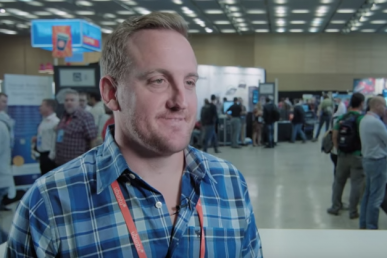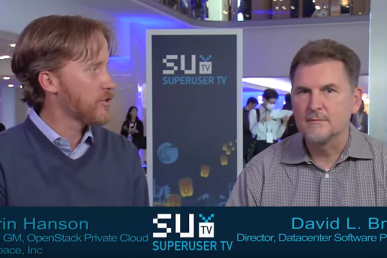Michael Apostol’s assessment of IT hiring trends was spot on. In his recent interview on Superuser TV, the software engineering director at the OpenStack Innovation Center highlighted a key shift in the skills needed in today’s IT environments: whereas not long ago, IT departments sought specialists, today’s corporations seek IT pros that are both specialists and generalists.
“If I look back to [previous hiring practices], what I was looking for… [was] very much a specialist…in languages, domains, apps, client…. I found that [approach] to be very successful, and I think that will continue to be very successful,” Apostol commented on past trends. “Now what I’m really looking for [in IT candidates] is generalists, somebody who can come in and be a specialist and do very well, but who also has that ability—that emotional intelligence—to move on and be able to do other technologies.”
Sounds like a job for an IT Superhero, you say? Perhaps. But Linux Academy—a quickly-growing company out of Dallas-Ft. Worth—is helping individuals and corporations meet this dichotomous demand. “It’s not enough anymore to have just technical knowledge and skills; you must effectively apply skills in your IT area and apply them in the context of a much larger, much more complex, continuously changing computing environment,” commented Anthony James, founder and CEO of Linux Academy, which is known for its hands-on labs and in-depth training on Linux and cloud technologies.
This expectation is true even for new college graduates: “They come out and are awesome at writing software…,” observed Apostol. “They’re picking up Python, Linux, and those things well, but what they’re lacking is a lot of the operational knowledge. They need to know how do I use OpenStack, what is it like to be an operator….”
Linux Academy has distinguished itself by combining the technical depth of their full-time subject matter experts with a hands-on learning environment and a focus on applied knowledge: “Our hands-on labs are key in training students to apply knowledge and skills,” James stated.
At Linux Academy, every student has access to up to six personal servers to use in completing exercises and practicing skills. Additionally, Linux Academy features “LiveLabs!” which are pre-built lab environments that enable students to practice skills without having to spin up an environment before they can work on the task at hand. The hands-on labs and personal server space are what help bridge the expert-generalist gap: “The labs are where students see how pieces of technology intersect in real-world environments,” Justin Overstreet, Linux Academy’s VP of business development, stated.
“In large OpenStack corporations, you may have one IT pro using Swift for object storage while another specializes in Ceph for block storage, with neither familiar with Nova and compute services,” stated Amy Marrich, one of two OpenStack instructors at Linux Academy. “These experts could take courses at Linux Academy on Chef, Python, Ansible, or Puppet, and get hands-on training that expands potential opportunities. “And at smaller OpenStack companies,” she continued, “having broader skills can aid in deployments and troubleshooting to help reduce overall costs.”
Certifications like the Certified OpenStack Administrator (COA) are important as well, according to Apostol. “As a hiring manager, I love being able to measure, and [an applicant’s] certification tells me something: they went out of their way, they spent a little money, they got the training and they proved that they could pass the test.” The Certified OpenStack Administrator course is one of three OpenStack certification prep courses the Linux Academy offers. Across all content areas— Linux, AWS, OpenStack, DevOps, Azure, Big Data, and Containers—Linux Academy offers 15 certification prep courses.
Anthony James holds an impressive nine certifications, although his philosophy about IT training stands out even more: “Linux and cloud training should not just be about passing the certification exam. Our goal is to help you apply knowledge and skills in real-world environments. If you can demonstrate your knowledge and skills in our hands-on labs and exercises, then you should be able to pass certification exams.”
IT training demands solutions that evolve with business needs. “We’re piloting something today that works with bringing new college graduates to experts in upstream contributions, and it’s been hard to figure out what to teach them,” said Apostol. “We’d really like to see the trend of certifications and advanced certifications continue.”
Linux Academy expects to announce a new partnership during the first fiscal quarter that brings a new solution to training and certification needs. When asked for preliminary details on the upcoming release, James only comment was, “labs-based learning and performance-based certification are the keys.”
Stephen Smith is the vice president of content at Linux Academy.
Superuser is always interested in community content, email: [email protected].

)










